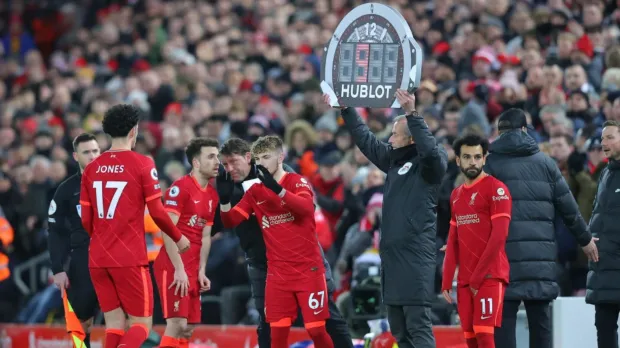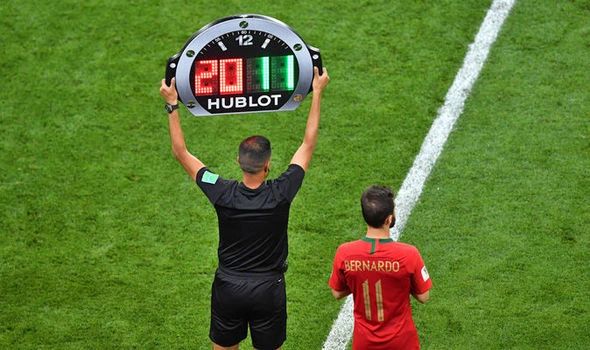From goal-scoring legends and nimble midfielders to rock-solid defenders, football never ceases to amaze us with its thrilling dynamics. But amidst the on-field action, have you ever wondered how many subs can have in football? Join us as we delve into the fascinating world of football substitutions.
What is a subs in Football?
Subs, short for substitute players, are an essential aspect of the game of football. They refer to players who are not part of the starting lineup but can be brought into the game at any point during the match. Substitutes play a crucial role in maintaining team performance and strategy, making them an integral part of any football team.
So why are substitutes important? Injuries are an inevitable part of sports like football that involve intense physical activity and contact between players. Having substitutes ready on the bench allows teams to replace injured or fatigued players without hindering their gameplay significantly. This ensures that teams can maintain their strategies and have fresh players on the field to prevent a drop in performance.
Substitutes also offer coaches an opportunity to make strategic changes during a match. If a team is struggling to score, for example, a coach can bring on an attacking player from the bench to add more firepower upfront. This versatility adds an extra layer of strategy and tactics to the game, making it more interesting for fans.
How Many Subs Can a Team Have?

In football, substitutions play a crucial role in the strategy and outcome of a match. However, there is often confusion surrounding the number of substitutes that can be used by a team in a single match.
The number of substitutes allowed in a football match varies depending on the competition and governing body. The official rules for international matches are set by FIFA, while domestic leagues and cup competitions have their own regulations.
1. FIFA Rules for International Matches
In international matches, including the World Cup and continental championships such as the Euro or Copa America, each team is allowed to name up to 23 players in their squad. Out of these 23 players, only three can be substituted during the course of the game.
This rule was first introduced by FIFA in 1994 when they increased the number of substitutes from two to three. This change was made to improve player welfare and reduce fatigue during tournaments with intense schedules.
However, there is an exception to this rule for knockout games that go into extra time. In such cases, both teams are allowed one additional substitute which makes it four subs in total. This extra substitution has been implemented since 2018 to reduce injuries caused by fatigue during extended periods of play.
2. Domestic Leagues
In most domestic leagues around the world, including top-tier competitions like English Premier League or La Liga, teams are allowed to name seven substitutes on their bench. Out of these seven players, only three can be used during the game.
However, some leagues have different regulations regarding substitutions. For example, the German Bundesliga and French Ligue 1 allow up to nine substitutes on the bench but still limit teams to three substitutions per match.
Furthermore, there are also variations in substitution rules for cup competitions within a country. For example, the FA Cup in England allows up to five substitutions in a match while the Carabao Cup only allows three.
Different substitution rules in major football leagues around the world

Different substitution rules exist in different major football leagues around the world. While some leagues follow the standard rule of allowing three substitutions per game, others have adopted alternative systems to manage player fatigue and injuries.
1. Premier League (England)
In the Premier League, each team is allowed to make three substitutions during a match. However, there is an additional rule known as “the seven-man bench” which allows teams to name up to seven substitutes on their bench instead of the usual five. This gives managers more options for making tactical changes during the game.
2. La Liga (Spain)
Similar to the Premier League, La Liga also follows the three-substitution rule. However, in 2019, they introduced a new rule that allows teams to make a fourth substitution if the match goes into extra time. This was done with the aim of reducing player fatigue and increasing competitiveness in cup matches.
3. MLS (United States)
The Major League Soccer (MLS) has a different substitution rule compared to other major leagues. In addition to the standard three substitutions, teams are also allowed one extra substitution during halftime, making it a total of four substitutions per game.
4. J-League (Japan)
The Japanese J-League has recently adopted a new substitution rule known as the “Player Development Rule.” This allows teams to make up to five substitutions during a match but with certain conditions – one of the substituted players must be under 21 years old and another must be a player from their designated youth training squad.
Strategies for using substitutions effectively

One of the key aspects of being a successful football manager is knowing how to use substitutions effectively. Substitutions can be game-changing and have the power to turn the tide in a match, but they must be used wisely and strategically. In this section, we will discuss some strategies for using substitutions effectively.
1. Understand your team’s strengths and weaknesses
Before making any substitutions, it is important to have a clear understanding of your team’s strengths and weaknesses. This will help you identify which players need to be substituted and at what point in the game.
2. Analyze the game situation
As a manager, it is crucial to analyze the current state of the game before making any substitutions. Is your team winning comfortably or struggling? Are there specific areas on the field that need improvement? These factors will influence your decision on which players to substitute.
3. Have a plan in mind
It is important to have a substitution plan in place before the match even begins. This could include predetermined changes based on certain scenarios or having specific players earmarked for substitution depending on how the game unfolds.
4. Consider player fatigue
One of the main reasons for using substitutions is to replace tired or injured players with fresh ones. Keeping an eye on player fatigue levels throughout the match can help you make timely and effective substitutions.

Conclusion
There are differing opinions on whether unlimited substitutions in sports would enhance or hinder strategic team management. However, what cannot be denied is the importance of proper player management and utilizing substitutes effectively in order to achieve success on the field.
FAQs
The allowance of 5 substitutions provides coaches with the opportunity to make tactical changes and adapt to the flow of the game without risking player exhaustion or injury.
Five
Typically, substitutions are decided by the team’s coach or manager, with players being required to adhere to their guidance. Willfully rejecting being substituted can disturb the team’s game plan and unity on the field.





